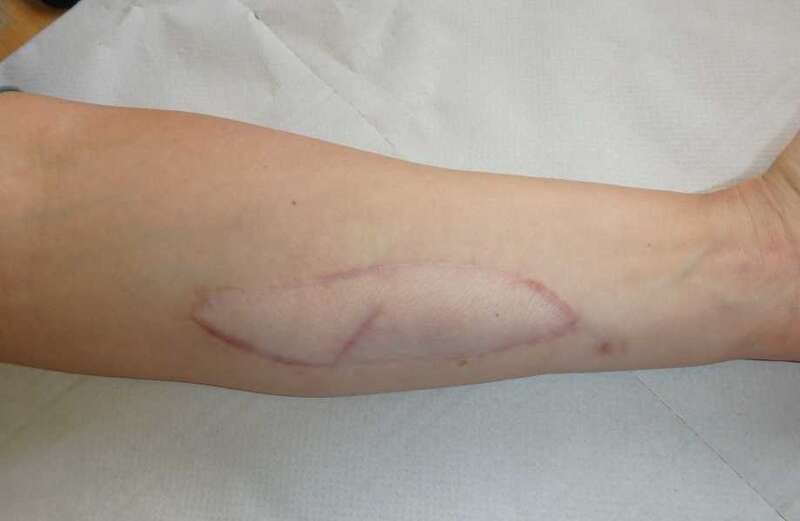SKIN patches could halve rates of deadly organ rejection in transplant patients, hope scientists running an NHS trial.
Around 4,500 Brits have organ transplants each year but the body rejects them in up to a third of cases.

An experiment will now give 152 lung transplant patients a small 10x3cm skin graft from their donor at the same time as their op.
Experts believe the skin patch, to be put on the forearm, will come up in a rash if the body starts to reject it – as a warning that the lung is being rejected, too.
Skin reacts faster than other organs and can be seen so it is easier for a patient to tell something is wrong.
 Hospitals run out of oxygen and mortuaries full amid NHS chaos
Hospitals run out of oxygen and mortuaries full amid NHS chaos
If this happens doctors can ramp up treatment to control the immune system and prevent the donated lung being rejected too.
Trial leader Professor Hank Giele, from Oxford University, said: “A visible warning system like this is crucial for all transplants, but especially those with higher rejection rates.
“It is often difficult to know if a reaction is caused by infection or rejection as they look the same at the early stages, but the treatments for each are completely opposite.
“It’s for this reason that we have focused the trial on the lungs.”
NHS rollout 'could reduce rejection rates by 50 per cent'
Previous research on gut transplants found the skin patch may also naturally reduce the risk of rejection.
The £2million trial will be run by Oxford University along with NHS Blood and Transplant and recruit 152 lung transplant patients over three years.
The researchers hope if it is successful and rolled out to all lung transplant patients it could reduce organ rejection rates by up to 50 per cent.
Health Minister Andrea Leadsom said: “Early detection of organ rejection means a healthier transplant, giving people greater control of their care and speeding up access to treatment.”



































